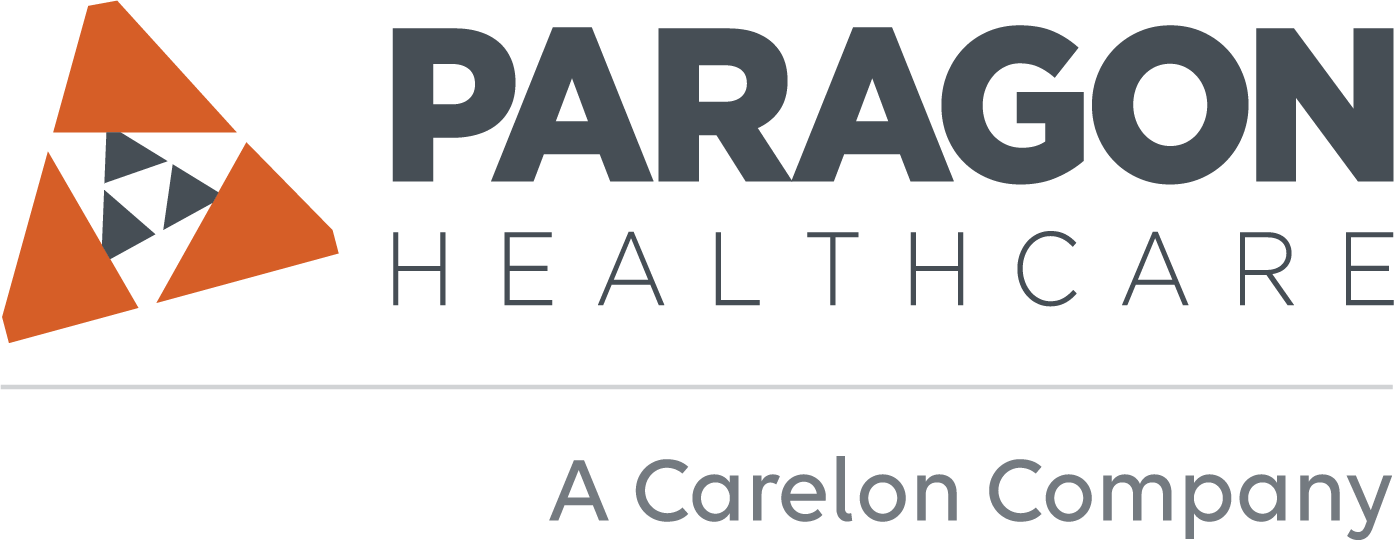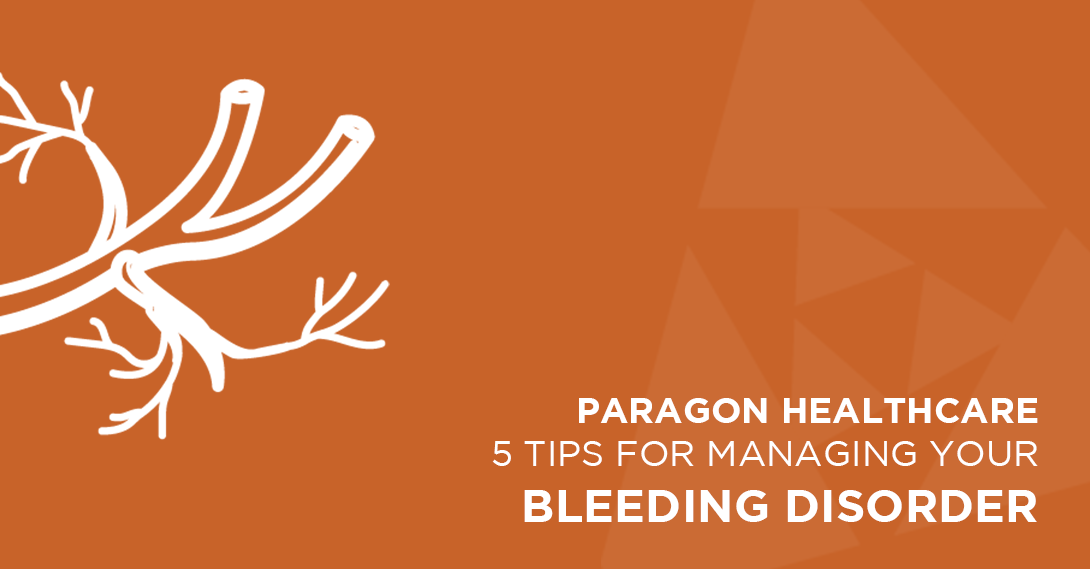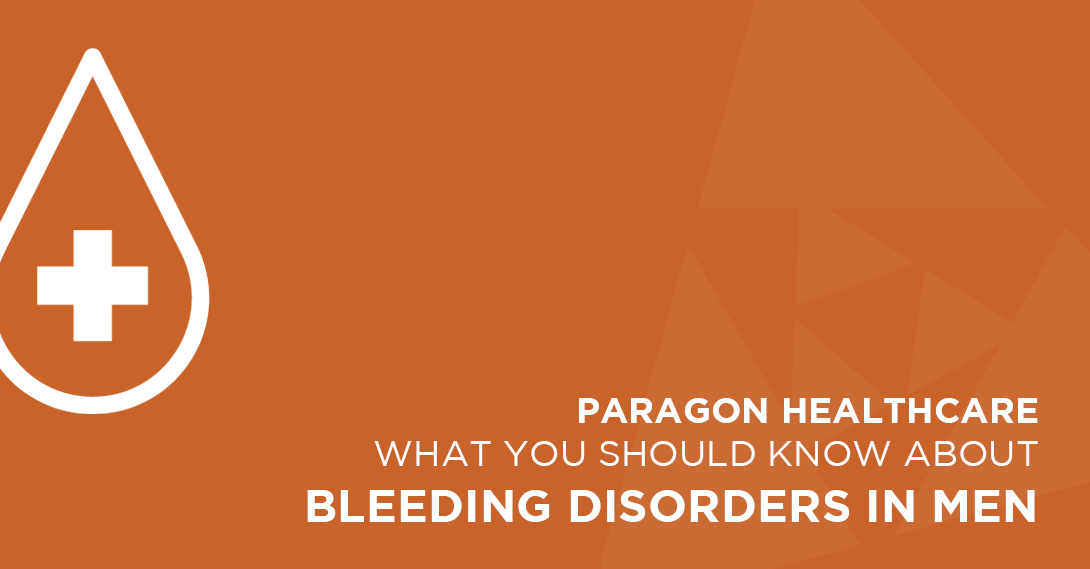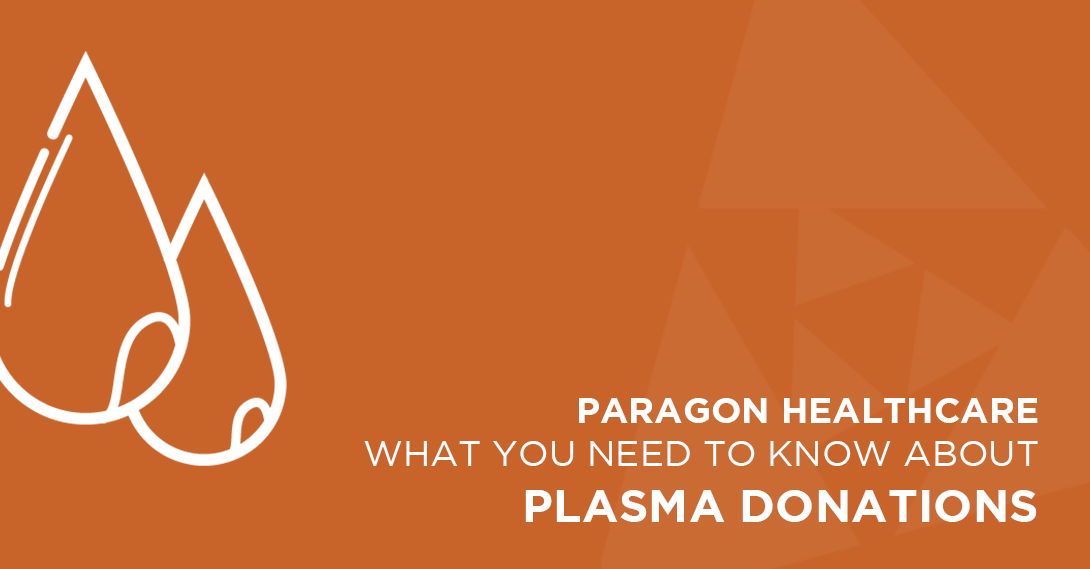At Paragon, we love empowering our patients to manage their health condition successfully. Our bleeding disorder division specializes in treating Hemophilia A, Hemophilia B, and von Willebrand Disease (vWD).
Bleeding disorders are caused by genetic defects. When the blood is unable to form a suitable clot, a patient will bleed longer than other people. They may experience symptoms such as:
- Easy bruising
- Bleeding gums
- Unexplained nosebleeds
- Heavy menstrual bleeding
- Excessive bleeding after surgery
- Internal bleeding
How Are Bleeding Disorders Treated?
Patients can treat their condition with medication given into the vein to replace the missing clotting factor. People with Hemophilia A may have an option to use an injected medicine, similar to getting a shot at the doctor’s office. Depending on the type of vWD, it is treated with medication given orally or medication given into the vein to replace the missing clotting factor. Medication for vWD and hemophilia is provided by a specialty pharmacy, such as Paragon. Patients can also manage their condition through proper nutrition and exercise.
What Are Some Tips to Help Manage a Bleeding Disorder?
Be honest with your doctor. Sometimes there is information that may feel private or awkward, but it is crucial that you share what is going on with your doctor so they can properly treat you. Properly managing a bleeding disorder is a team effort and requires honesty about your symptoms, feelings, etc.
Do the activities you want to do but err on the side of caution. Properly managing a bleeding disorder will require changing certain things in your life. If there are specific goals that you are working towards or activities that you want to be involved in, talk to your doctor about what is safe and doable with your condition.
Educate those around you. Many bleeding disorder patients may feel concerned that their friends will judge them for having a bleeding disorder. You might be surprised to learn that people who are genuinely your friends will be interested and supportive.
Set up a support system. Involving friends and family members in your condition can be beneficial in helping you properly manage things. Balancing physical self-care and also mental and emotional care is critical to your overall quality of life. Don’t be afraid to ask for help if you ever feel like you are struggling.
Be involved in the community. By participating in bleeding disorder chapter events, you will find yourself surrounded by people that can relate to what you are going through. There are national chapters, local chapters, and support groups. These organizations are dedicated to helping bleeding disorder patients, and caregivers have access to resources, receive financial support, volunteer to give back to the community, and more.
For more information about our Hemophilia Division at Paragon Healthcare, visit https://paragonhealthcare.com/hemo/.
For additional support and resources:
- Hope for Hemophilia - Helping people living with hemophilia and their families through seasons of crisis since 2009 with financial, emotional, and practical support. https://www.hopeforhemophilia.org/
- Hemophilia Federation of America - A patient education, services, and advocacy organization for the rare bleeding disorders community. Focused on bleeding disorder patients and caregivers. https://www.hemophiliafed.org/
- The Coalition for Hemophilia B - The Coalition for Hemophilia B strives to make quality of life the focal point of treatment for individuals living with Hemophilia B. For over 28 years, they have pursued a family-oriented approach because hemophilia affects the whole family. https://www.hemob.org/
- National Hemophilia Foundation - Dedicated to finding better treatments and cures for bleeding disorders and preventing complications through education, advocacy, and research. https://www.hemophilia.org/





